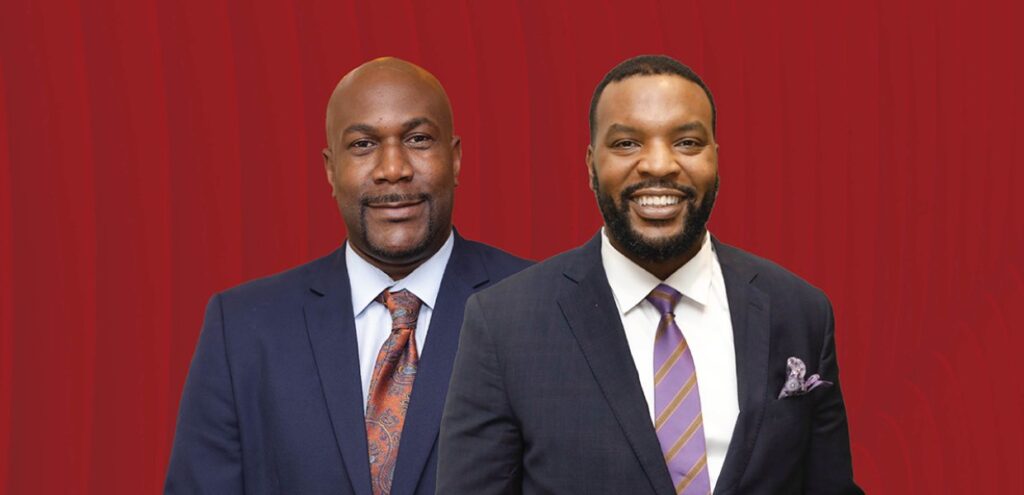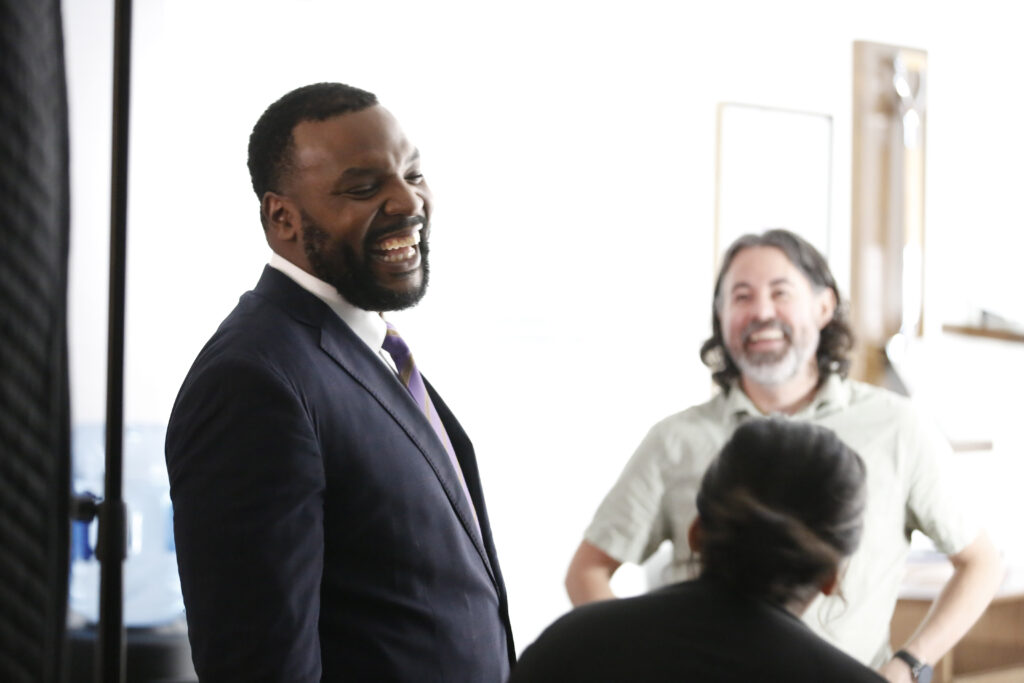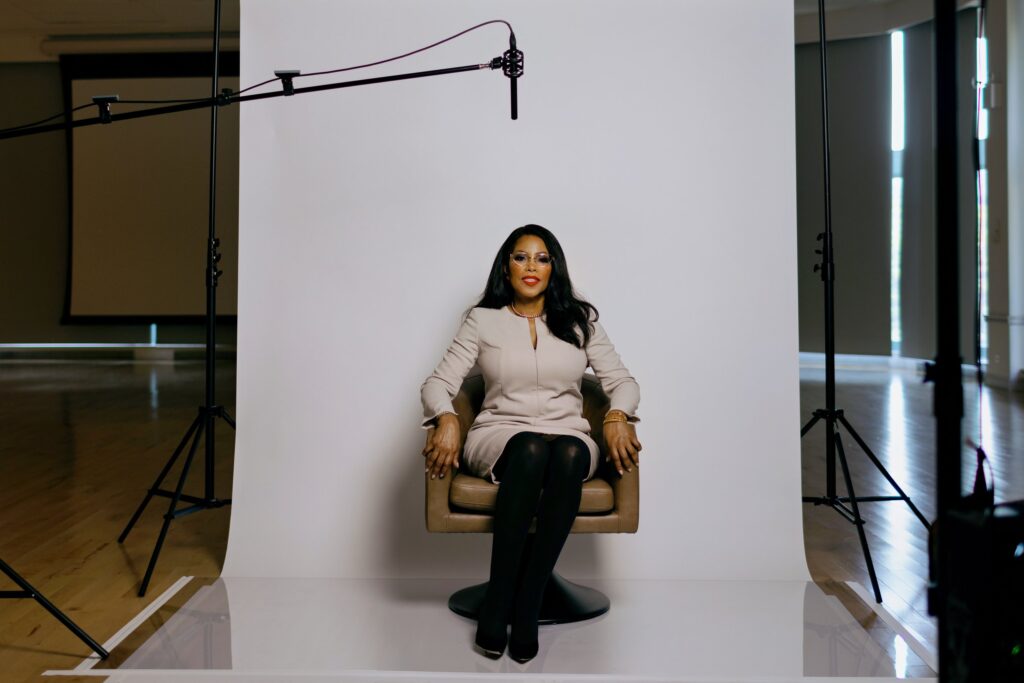George Floyd’s brother, Philonise Floyd, and Atty. Lee Merritt take the stage on Charlotta Bass Day
The USC Charlotta Bass Journalism & Justice Lab will debut two new AI-powered Interactive Interviews with these leading advocates of policing reform.

LOS ANGELES — January 29, 2025 — The USC Charlotta Bass Journalism & Justice Lab is proud to host its annual Charlotta Bass Day on Tuesday, February 11, 2025, from 12 PM to 2 PM at Wallis Annenberg Hall. This annual event, first established through the Bass Lab’s advocacy, honors the pioneering legacy of Charlotta Bass, the first Black woman to own and operate a newspaper in the U.S. and a trailblazer in using journalism to advocate for racial and social justice.
Each year, the Bass Lab marks Charlotta Bass Day by debuting a new AI-powered Interactive Interview, a groundbreaking technology that allows audiences to engage in immersive, real-time conversations with influential figures in the fight for justice. This year’s featured Interactive Interviews will showcase civil rights attorney Lee Merritt and Philonise Floyd, the younger brother of George Floyd, in commemoration of the five-year anniversary of George Floyd’s murder.
Exploring the intersection of law, media, and justice
The 2025 Charlotta Bass Day theme focuses on how lawyers and families have historically used the media to rally public support for cases that shape our justice system. Attorneys like Lee Merritt have worked at the intersection of law and media, using public platforms to galvanize movements, while families like the Floyds have turned to the media to amplify their calls for justice and accountability.
“Charlotta Bass Day is a celebration of a visionary journalist who used the power of the press to fight for justice. Each year, we honor her legacy by ensuring that the voices of today’s civil rights leaders are preserved through innovative storytelling,” said Dr. Allissa Richardson, the Bass Lab’s founding director. She added: “This year’s Interactive Interviews with Lee Merritt and Philonise Floyd remind us that the intersection of law and media has long been a battleground for justice. At a time when the truth is increasingly contested, it is more critical than ever to document Black history in ways that ensure it is accessible, immersive, and enduring.”
Through these Interactive Interviews, attendees will gain firsthand insight into how legal advocates and affected families navigate the court of public opinion alongside the court of law. These interviews demonstrate how media engagement has long been a powerful tool in civil rights cases—from Charlotta Bass’s newspaper The California Eagle, which fought against police brutality and housing discrimination, to today’s viral social media campaigns.
Revolutionizing storytelling with AI-powered Interactive Interviews
Using cutting-edge natural language processing and AI-driven video synthesis, the Bass Lab’s Interactive Interviews allow attendees to ask pre-recorded figures direct questions and receive responses as if in a real-time conversation. This year’s interviews with Lee Merritt and Philonise Floyd offer a dynamic new way to preserve oral histories and bring critical discussions about justice into classrooms, libraries, and public spaces.
The development of this technology is made possible through partnerships with USC Libraries and USC Digital Repository, which co-produce the conversational AI exhibits with the Bass Lab. Dr. Richardson explained: “By harnessing AI and archival technology, we are not just preserving history—we are making it impossible to ignore.”



